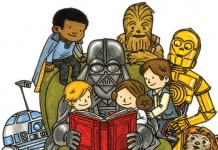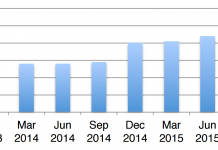 David Carnoy has a post at CNet looking at whether people really need to buy e-book readers at all. He notes that in his experience, a lot of people who get or are given e-readers end up not actually using them very much.
David Carnoy has a post at CNet looking at whether people really need to buy e-book readers at all. He notes that in his experience, a lot of people who get or are given e-readers end up not actually using them very much.
Some of them simply don’t want to mess with them; others end up associating them with free or cheap, mostly bad books. Others complain about the expense of e-books, and not feeling like they get much for their money.
Former CNET editor Scott Stein purchased a Kindle for his mother but was concerned she wouldn’t use it very much—but the $189 Kindle was cheaper than an iPad, which she might not use either.
"It’s gotten to the point where these e-readers are cheap enough so it doesn’t matter so much whether the person you’re gifting will actually use it," he remarked.
I’d be inclined to admit there’s some truth in Carnoy’s assertions, but there’s nothing particularly about them that applies to e-book readers alone. In fact I’d say the same general principles could be applied to any new gadget: some people use it a lot, some a little, and some hardly at all. What do you think?

































It has been pointed out several times not, not jsut on this site, that by and large folks want their e-reader to be part of a larger package… the device must do more useful things besides digital reading. This is why the iPad is so popular. Due to the way I use my time, if I had a Nook or Kindle I’d likely not read on it every day, or every other day; it was likely be relegated to weekend use, maybe. Therefore, I won’t be buying one. Currently–as a book reviewer, writer, part-time accountant and columnist–I use my laptop 30 times a day, in between other tasks. If I buy a new computing device, it would most likely be an iPad.
I am not convinced it is a ‘lot of people’. I do think there are some, but not many. I suspect most of those ‘some’ are those who have received via a gift. This means they are not early adopters by nature and not as determined to overcome the barriers they face.
And I believe the barriers that prevent them from using them are mainly the ones we discuss here every week. Confusion between formats, DRM, worry about permanency, inability to lend etc.
If you’re an avid reader, you’re probably going to consume e-books at a rate even faster than when you had only paper books simply because of the convenience.
If you’re a casual, one or two books a year reader, and someone gifts you with a Kindle, you’re probably not going to change overnight into a bookaholic.
Grabbing a book on a quick errand run would probably never occur to a casual reader while an avid reader would will grab her Kindle/nook/Sony before her car keys. (You never know when a line will form offering you a few seconds of “book time”.)
As e-readers become more and more affordable, we’ll see more and more casual readers adopt them out of curiosty more than need and the percentage of e-readers spending time alone in a drawer will undoubtedly increase.
I agree that when you look at owner usage, the e-reader is destined to be just another gadget–indispensible to some, just another piece of plastic to others.
And then there are the books that are bought and not read. Or musical instruments not played. Or gym memberships not exploited.
Rob Preece
Publisher
As a new Kindle owner, avid reader and a writer I find the K leads me to buy and read more current hardcovers and especially because of the Sample Pages. I think that is key to increased sales and it’s simply more convenient when you get them on a device you’re accustomed to reading on and carrying around with you. I hated K at first, I noticed, until I ordered and read The Cookbook Collector which is so good it made me forget what I was reading on.
With zero data to back me up, I’m going to agree that it’s probably the gifts that get left unused. If you’re going to pay hundreds of dollars for an e-reader device for yourself, you’re probably serious about reading e-books.
what rob preece says.
adding that once can more easily use an e-reader in the gaps offered by one’s day, than run to the gym or play part of a tune. if one has brought the device along in the first place.
I read far more on my Kindle than I did before, and I’ve always been a bookworm. I estimate that I’ve read at least 100 books since last December, not counting the few physical books I’ve also read. And not all of my reading time is books. I also read a dozen magazines and 61 blogs.
Why would you get an eReader for someone who isn’t an avid reader? For example, my mother is an avid reader but she doesn’t buy books, she only checks them out from the library. So I’m considering the Kobo for her, not the Kindle. My daughter, also a reader, is getting a Kindle for her birthday and has been collecting free Kindle books (and a few purchased ones) for months in anticipation. My son reads, but isn’t really interested in an eReader. If I ever get a new one, I’ll give him my old one.
For people who read casually, they can use Kindle for any device instead.
It would be interesting to see statistical data on where eReaders are being used, and who uses them. For instance do writers not use them because they stay indoors at home and write, and do the majority of their reading on a PC or laptop? Do those who download 100+ books a year read them out of doors or while on the morning/evening commute? Do seniors read more ebooks than teenagers on dedicated devices?
Then there are the more categorized questions: are Kindle owners buying more ebooks than Nook users? Is testing down due to pre-teens using their parent’s iPad to eBooks?
It’s such a new industry that drawing conclusions from mere inferences just doesn’t make sense.
There are times I use my e-reader, and times I don’t. It largely depends on if I have time for reading, and if there’s something I want to make time to read. A lot of the books I’d like to read at the moment aren’t available as e-books, probably because they’re too old for publishers to care about but not old enough to be in public domain.
Meredith Greene Said:
“It has been pointed out several times not, not jsut on this site, that by and large folks want their e-reader to be part of a larger package…”
Where exactly has this been pointed out? The only place I have seen such an opinion is in opinion pieces by people who are pushing for the iPad. What is it with people and Apple products? Do they own stock or something?!
I couldn’t disagree more with the sentiment expressed in Meredith Greene’s comment. If I need a multi-function device, I use a computer/netbook. If I want to *read*, I pick up my Kindle. And I have seen as many articles that have “pointed out” this opinion as what is claimed in the quote above.
Put it this way: Do most cell phones have (digital) cameras? Yes. Have (digital) camera manufacturers gone out of business due to cell phone cameras? I don’t think so. Who relies exclusively on a cell phone camera for taking important pictures (e.g. vacation, professional photography)? People who are only casually (at best) interested in quality photography. The point: Serious readers have no problem with a high-quality single purpose ereader device.
I concur on the notion that people who get a Kindle or other eReader as a gift are not as likely to use it as people who buy their own. I think a more interesting statistic would be how many iPad owners use it primarily as an eReader. I’m guessing not that high a percentage, maybe 20% tops.
I know at least 18 people who own Kindles (one Kindle 1, three Kindle 3’s and the rest K2s). All of them use them regularly and say they read more with it than they did without it. Ditto the two folks I know who own Nooks. Of those 18, only two were gifts, but those they were both avid readers whose husbands bought them for them.
I have seen folks online post that they bought a Kindle and returned it because they just didn’t like it. There is nothing that every single person likes.
To me, an e-reader is a very personal choice. I love gadgets and I read a lot. People who personally know me, but have never discussed e-books with me, would incorrectly assume that the Kindle would make a perfect gift. I was an early e-book adopter, and read mostly on various PalmOS handhelds over the years. The formats in my e-book library are not compatible with the Kindle. When the Kindle first became popular in the mainstream, some family members almost bought one for me as a gift. Fortunately, someone “casually” asked what I thought about the gadget, and I told them that it looked good, but wouldn’t work for me personally. If they had still bought a Kindle for me, it probably would not be used much, except for reading an occasional free book. Even though I still read a lot of e-books, I do not want to start paying for a different (DRM-locked) format.
It’s about books – not about toys, is it?
Meredith said:
” . . the device must do more useful things besides digital reading.”
I personally don’t see this at all. In fact I believe that many of the current eReaders are being souped up with functions that the great majority of readers really don’t want such as note taking etc.
I believe most people (not necessarily the early adopters) will want a light, thin, easy to carry, easy to use eReader for one reason and one reason only – to read books on.
The eReader will very soon become an almost throw away commodity the way mobile phones are.
To quote Meredith again: “…the device must do more useful things besides digital reading.”
Why? If you’re an avid reader, you buy an e-reader to do exactly that…read.
Meredith freely admits that if she had an e-reader it would “likely to be relegated to weekend use, maybe”. Great! Then don’t buy an e-reader; and, please, don’t try to tell me what my e-reader “must” be doing!
Why, oh why, can’t people who need/want a do-all device accept the fact that readers, serious books-are-as-necessary-as-oxygen readers, are happy with a dedicated e-reading device and have no interest in additional bells and whistles, (that, I for one would likely not ever use…even on weekends).
If you MUST have a do-all device, buy one and be happy with it; but don’t expect me to thank you for campaigning to have my Kindle turned into a netbook or iPad clone.
People forget that the cnet article is entirely based on anecdotal evidence. We already know from sales statistics that people with ebook readers read more books than others – and also that they tend to read more than they used to.
PS. Could Teleread link to the article referenced so that people can read comments like this in context? http://reviews.cnet.com/8301-18438_7-20018620-82.html
I find myself a bit surprised and amused by the level of emotion in some of these responses. As a professional book reviewer I fit nicely into the ‘serious’ reader category; I read 10-12 books a week, half of them ebooks. Just in polling my list of contacts on LinkedIn, I discovered that 90% of the 477 professionals wanted their eReader to do more things. In 2010 Walt Mossberg pointed out in an article comparing eReaders that while he liked reading on his Kindle at home, he was rarely home and instead read mostly on his iPhone, simply because he did not want to carry two devices. In other words he needed (not wanted) a device that did more than just read eBooks.
Again, I point out that emotion-infused comments from the few hardly make up for real statistical data.
Well speaking for myself alone I enjoy enormously that the participants on Teleread are emotionally connected with the site and reflect that in their comments. The last thing I really want is to partake in a community of emotionless contributors.
On the subject of this article I read the article as pertaining to “most eReader owners” which I would imagine include an infinitesimal number of insider publishing people.